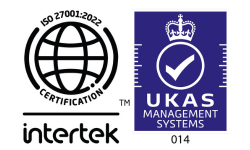How Businesses can Avoid HMRC Scams
Scams impersonating HMRC have recently become more frequent and convincing, leaving many business owners uncertain about whether a communication from HMRC is genuine. When it comes to online scams, fraudsters can use various methods such as emails, phone calls, letters, and even text messages to deceive individuals and businesses. To help protect your business from these scams, it’s important to know how to verify if a message or contact is legitimate. Below we have put together a guide for business owners on how to know if a HMRC contact is genuine.
Is a HMRC contact genuine?
It is sometimes difficult to decipher if a letter, call or email from HMRC is genuine, helpfully, HMRC have published some guidance on this:
- Check a list of genuine HMRC contacts – GOV.UK (www.gov.uk)
- Check if a letter you’ve received from HMRC is genuine – GOV.UK (www.gov.uk)
- Check if a phone call you’ve received from HMRC is genuine – GOV.UK (www.gov.uk)
- Check if an email you’ve received from HMRC is genuine – GOV.UK (www.gov.uk)
- Check genuine HMRC contact that uses more than one communication method – GOV.UK (www.gov.uk)
- Examples of HMRC related phishing emails, suspicious phone calls and texts – GOV.UK (www.gov.uk)
Cloud-Based Payroll Software
Cloud-based payroll software operates by utilising cloud computing technology.
Managed Payroll Services
Opt for a fully managed payroll service by outsourcing the entire payroll process to PayEscape
Integrated HR and Payroll
PayEscape’s integrated HR and payroll software combines powerful HR functionality with robust payroll capabilities.
Need help to understand what solution is best for your business?
Speak with our expert team today on 028 2764 1060
Check a list of genuine HMRC contacts
Check recent contacts from HMRC to help you decide if a suspicious email, phone call, text or letter could be a scam.
Spotting Common HMRC Scam Tactics
Being aware of fraudsters tactics can help you spot a scam before you fall victim to it, below are common areas you can learn to avoid:
- Urgent Language: Scammers will often claim you owe money to HMRC and demand immediate payment or action. HMRC will never rush you or use threatening language.
- Unexpected Refunds or Payments: If you receive a message claiming you’re owed a tax refund or that HMRC will make an unexpected payment, be cautious. HMRC will only communicate tax rebates through official letters or your government gateway account, not via email or text.
- Requests for Personal Information: HMRC will never ask for your personal or financial information (like passwords or PINs) through email, text, or phone calls.
- Attachments or Links: Be cautious of any communication asking you to click on a link or open an attachment. Scammers use these tactics to install malware or steal your information.
How to Verify HMRC Contacts
To ensure you are not falling prey to a scam, here’s how to verify the contact:
- Emails: HMRC will never email you requesting personal or financial details. If you receive an email that seems suspicious, compare it to the examples on the GOV.UK website. You can also forward suspicious emails to [email protected] for confirmation.
- Phone Calls: If you receive a call from someone claiming to be from HMRC, ask for their name and department, then end the call. You can contact HMRC directly using the official numbers on their website to verify if the call was legitimate.
- Letters: Check the GOV.UK website to see if the letter you received matches known official HMRC communications. Be wary of fake logos, poor grammar, and unusual contact details.
- Text Messages: HMRC may send texts, but they will never ask for sensitive information or include links to suspicious websites. Forward any suspicious texts to 60599.
How to report a HMRC scam
If you suspect a scam, it’s crucial to report it immediately. HMRC takes reports of phishing and fraud seriously. Here’s how you can report a scam:
- Phishing Emails: Forward the suspicious email to [email protected].
- Suspicious Texts: Forward the text to 60599, and then delete it from your phone.
- Suspicious Letters: Contact HMRC directly to verify whether the letter is genuine before taking any further action.
- Suspicious Phone Calls: If you think you’ve received a scam call, you can report it by calling Action Fraud at 0300 123 2040 or using their online fraud reporting tool.
Protect your business against HMRC scams
To protect yourself and your business from scams, follow these security measures:
- Be Cautious with Unsolicited Contacts: Never give out personal or financial information to anyone who contacts you unexpectedly.
- Use Secure Channels: Always use secure government websites like GOV.UK for any tax or financial dealings with HMRC.
- Stay Informed: Regularly check HMRC’s latest updates on scams and phishing tactics. Fraudsters often change their methods, so staying informed is key to staying protected.
Check Your Online Accounts: Regularly monitor your personal or business tax accounts to ensure there are no unexpected changes or suspicious activities.
 How payroll providers can protect against HMRC scams
How payroll providers can protect against HMRC scams
Using a reliable payroll provider like PayEscape can help you avoid HMRC-related scams. Payroll services that are integrated with HMRC systems ensure that all communications, filings, and transactions are secure and legitimate. PayEscape’s robust security measures and dedicated support can assist businesses in identifying and avoiding potential fraud attempts. For more guidance on payroll services and protecting your business from HMRC scams, reach out to PayEscape for expert advice.
Using our cloud-based software we manage all aspects of your payroll process. From calculating your payroll taxes and filing with HMRC to managing all components of auto enrolment and so much more. Whether it’s reimbursement or pre-tax benefits we’ve got it covered.
Our HR platform lets you manage all aspects of your HR administration. With HR Escape can approve and monitor holiday, record working time and calculate wages, allocate time and staff expenses to clients, projects, and activities, and much more.
Book your free demo now.
Need help to understand what solution is best for your business? Speak with our expert team today on 028 2764 1060
"*" indicates required fields

















